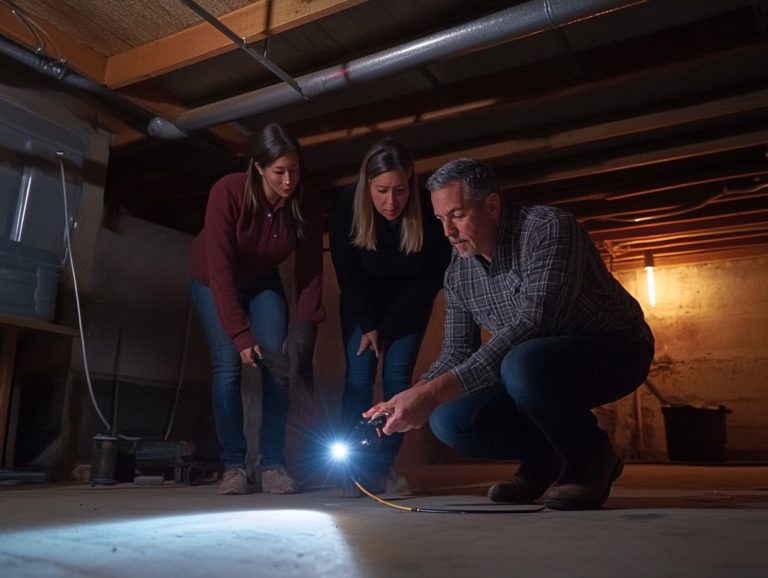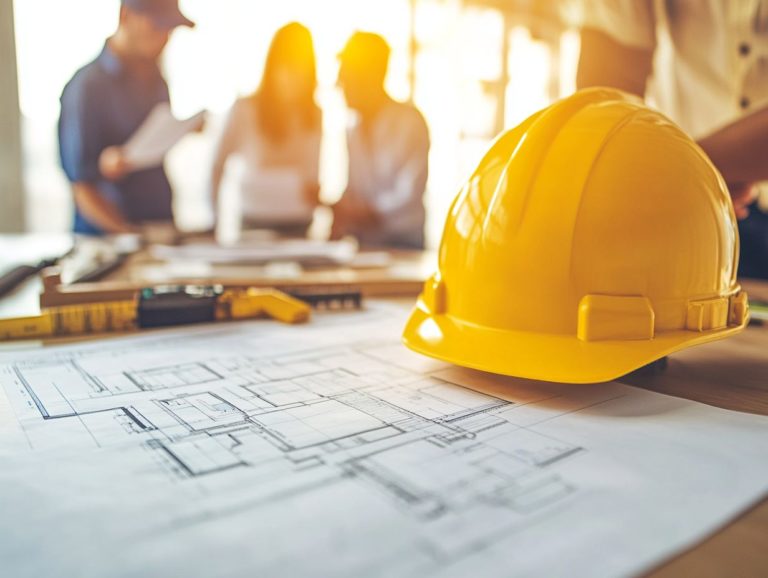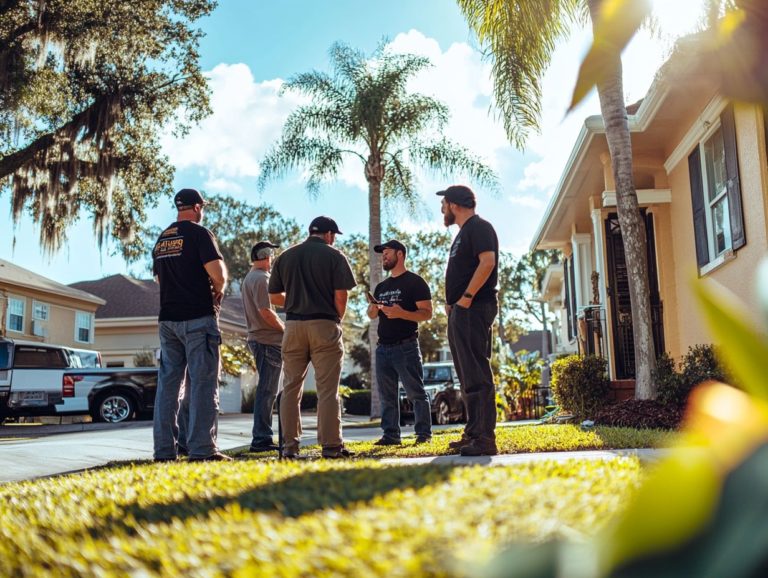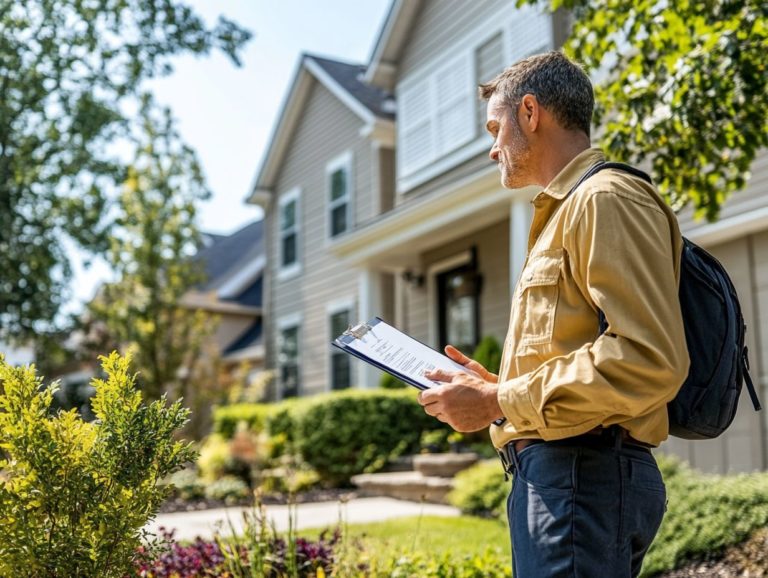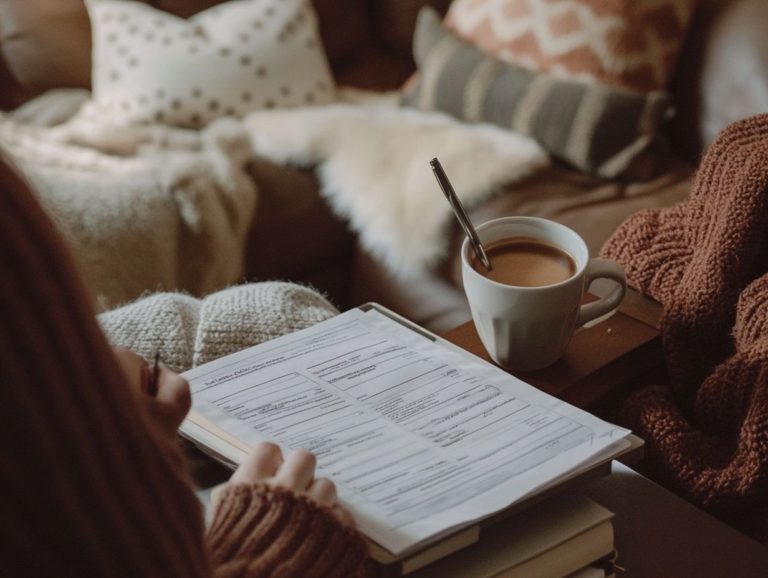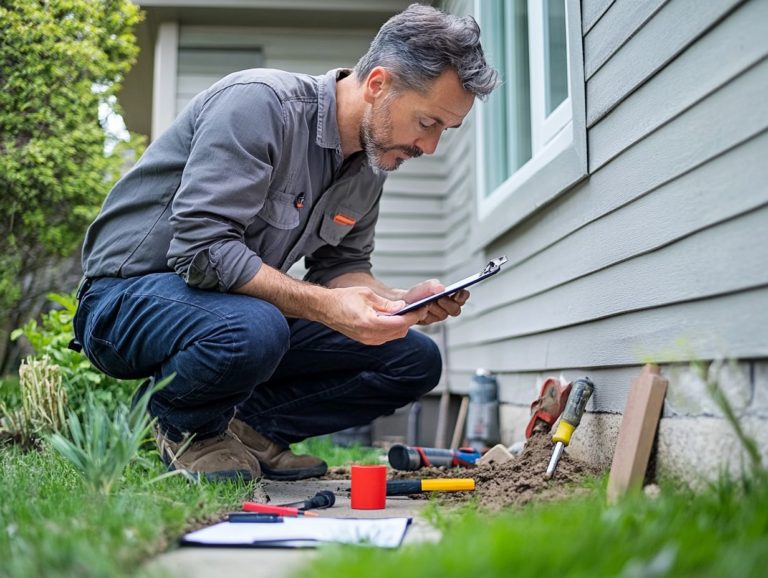How to Prepare for a Home Inspection as a Buyer
Purchasing a home stands as one of the most pivotal decisions you will ever undertake. Grasping the significance of a home inspection is absolutely vital.
This process not only protects your investment but also reveals potential issues that may need your attention.
This guide will walk you through essential steps to prepare for a home inspection, spotlight common problems to be vigilant about, and offer strategies for navigating negotiations with the seller.
By the time you finish reading, you will be well-prepared to tackle this crucial step with unwavering confidence!
Contents
- Key Takeaways:
- Why You Need a Home Inspection
- Steps to Prepare for a Home Inspection
- Common Issues Found During Home Inspections
- Negotiating After a Home Inspection
- Tips for a Successful Home Inspection
- Frequently Asked Questions
- What is a home inspection and why is it important for buyers?
- When should I start preparing for a home inspection as a buyer?
- What should I do to prepare for a home inspection as a buyer?
- Do I need to be present during the home inspection as a buyer?
- Can I negotiate the price or terms of the sale based on the home inspection results?
- What happens if the home inspection reveals major issues or necessary repairs?
Key Takeaways:
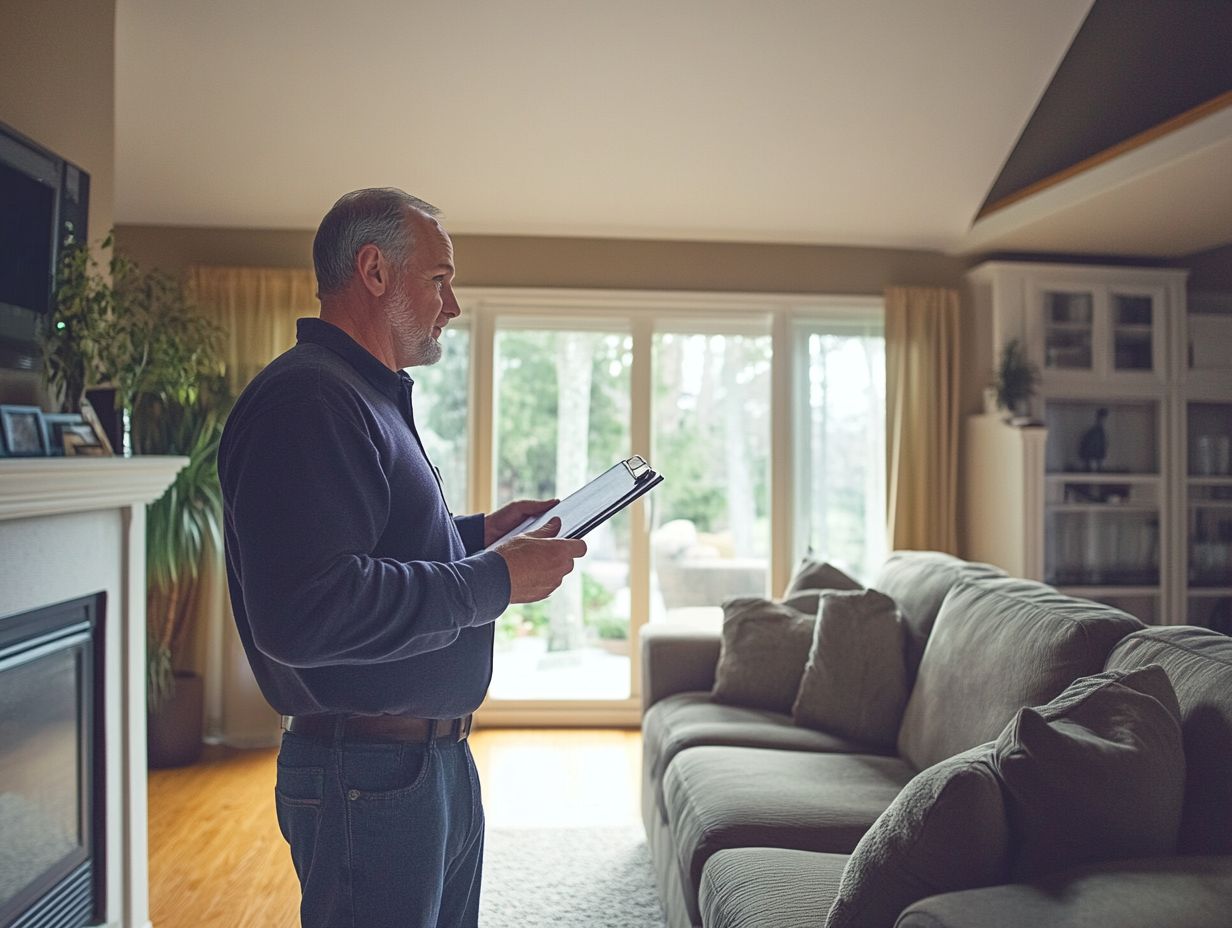
Understand the importance of a home inspection before buying a property.
Take necessary steps before and during the inspection to prepare effectively.
Be aware of common issues found during home inspections and how to negotiate with the seller after the inspection by understanding the home inspection process for buyers.
Why You Need a Home Inspection
Recognizing the significance of a home inspection is essential for any prospective buyer. It serves as a key step in assessing the property’s condition before sealing the deal. To ensure you’re ready, consider these tips on how to prepare for a home inspection.
When you hire a licensed home inspector, you gain insights into how well the home is built and potential repair costs. With this knowledge, you can confidently choose your next steps during the closing process.
This vital step reveals any hidden issues that could impact the property’s value. Additionally, it strengthens your position in negotiations with the seller, ensuring that your investment remains safeguarded.
Why a Home Inspection is Necessary
A home inspection is essential for uncovering the true condition of a property. This examination can significantly influence the home appraisal and aid in estimating potential repair costs.
This comprehensive examination not only brings to light hidden defects that might slip under the radar during casual viewings but also plays a pivotal role in assessing the effectiveness of important safety features, such as smoke detectors and electrical systems.
For potential buyers, engaging in such an inspection instills a sense of confidence in their investment, giving them the power to make informed decisions.
By identifying any underlying issues prior to sealing the deal, buyers can negotiate repair costs or even reconsider their commitment. This ensures that their new home is not just visually appealing but also safe and sound for years to come.
Steps to Prepare for a Home Inspection
Preparing for a home inspection entails several crucial steps that guarantee a seamless process while effectively identifying any potential issues within the property. Check out this guide on how to prepare for a home inspection for more insights.
Use a detailed inspection checklist to take a proactive approach. Collaborate with a licensed home inspector to ensure that every aspect of the home is thoroughly evaluated.
This preparation aids in understanding the maintenance requirements of the residence and paves the way for informed discussions about repair costs and potential negotiations with the seller.
What to Do Before the Inspection
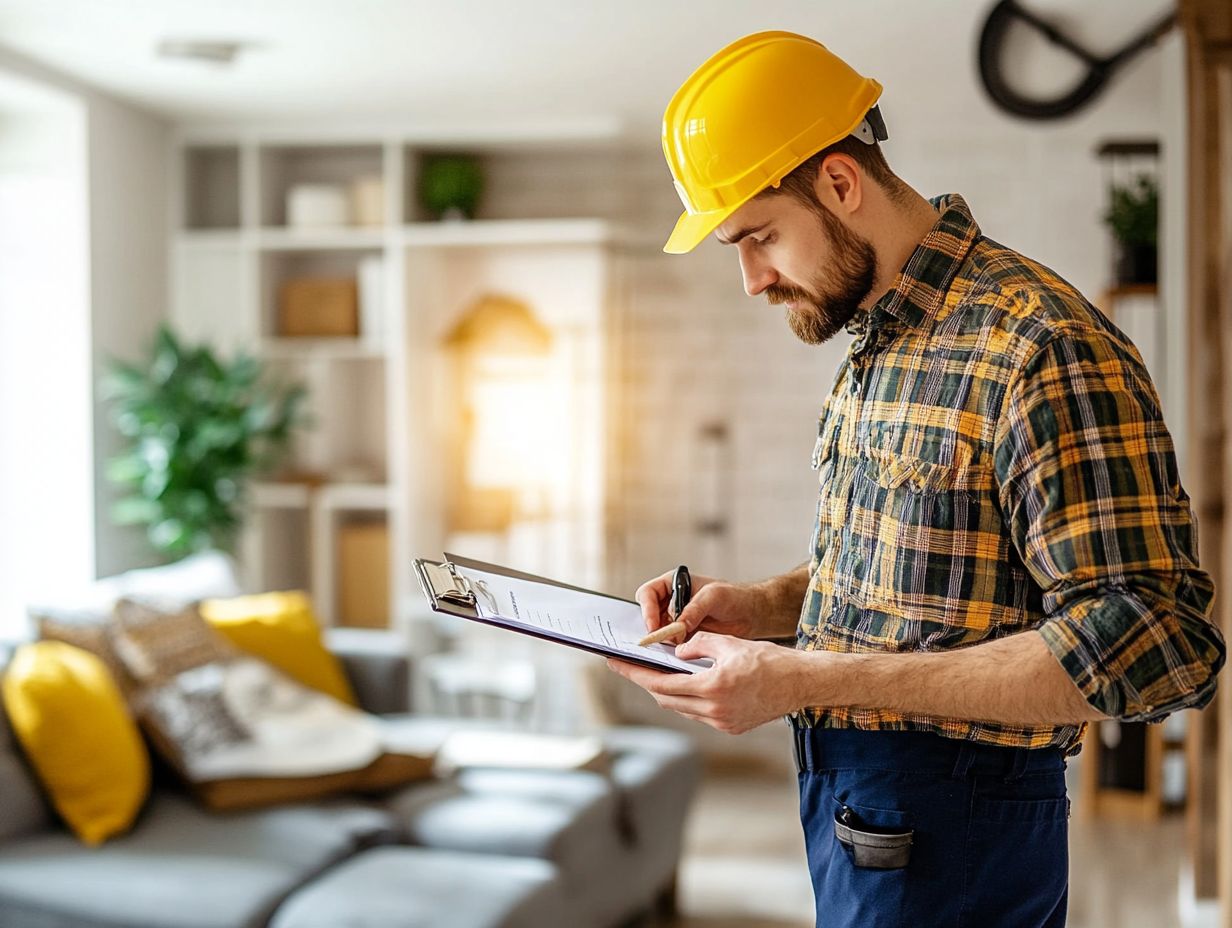
Before your home inspection, dive into the seller disclosure and craft a detailed inspection checklist. For more tips on ensuring a thorough process, check out how to prepare for a successful home inspection. This preparation ensures that you cover every nook and cranny of the property.
By doing so, you ll not only pinpoint potential red flags but also empower yourself to voice any specific concerns you may have about the home.
Gather all pertinent documentation like previous inspection reports and maintenance records to gain deeper insights into the property’s overall condition.
Consider preparing questions for the inspector, such as asking about signs of water damage or the age of critical systems like the roof or HVAC. Having a solid grasp of the seller disclosures will enable you to make informed decisions and negotiate repairs with confidence.
Don’t wait! Schedule your home inspection today to protect your investment!
What to Do During the Inspection
During the home inspection, actively engage with the licensed inspector to gain valuable insights into the visual examination of critical home systems. Ask thoughtful questions and observe the inspector s methods to understand the condition and functionality of the plumbing, electrical, and HVAC (Heating, Ventilation, and Air Conditioning) systems.
This involvement makes the inspection interactive and allows you to address any specific concerns about these essential components. Pay attention to unusual sounds or smells, as they could signal underlying issues.
Don t forget to ask about the age and maintenance history of these systems, as this information can significantly influence future repair costs and the overall value of your new home.
Common Issues Found During Home Inspections
Common issues that arise during home inspections can vary widely, from minor repairs to serious foundation concerns that may lead to escalating costs.
As a buyer, staying informed about potential red flags is crucial. Inspectors often spotlight problems within essential home systems plumbing, electrical, and heating that can greatly impact both the property’s livability and its overall value.
Recognizing these issues early can give you valuable leverage in negotiations and allows you to address necessary repairs before finalizing the purchase.
Identifying and Addressing Common Problems
Identifying and addressing common issues during a home inspection can save you from unexpected repair costs while ensuring you’re fully aware of the necessary maintenance requirements.
Foundation cracks, for instance, can jeopardize the structural integrity of a home, leading to larger problems if ignored. Roof leaks, often stemming from aged shingles or poor installation, can result in water damage and mold growth that no one wants to deal with.
Outdated electrical systems might not meet current safety standards, presenting substantial risks. By tackling these concerns early, you empower yourself to negotiate better prices while creating a safer living environment.
It s wise to consult with qualified professionals who can offer tailored solutions for each issue, ultimately enhancing the property’s value and longevity.
Negotiating After a Home Inspection
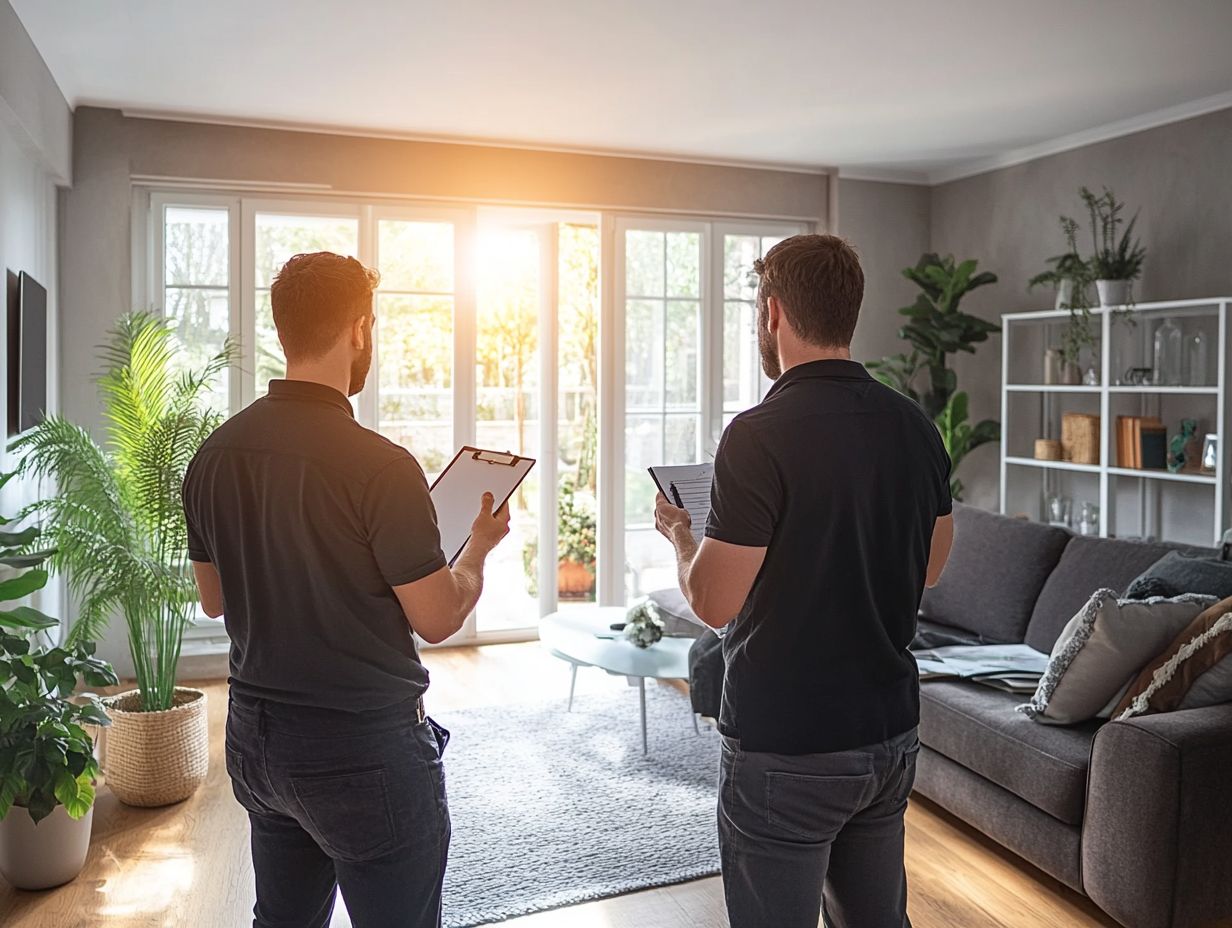
Negotiating after a home inspection is an essential step in your home buying journey. It gives you the power to address any issues that surfaced during the inspection and engage in discussions about repair costs with the seller.
Leverage the insights from the inspection report and your inspection contingency to negotiate effectively for repairs or price adjustments. This ensures you avoid overpaying for the property.
This phase also encourages clear communication with the seller, setting the stage for a more seamless closing process. Act quickly to address issues from the inspection to secure the best deal.
How to Handle Issues and Negotiate with the Seller
Handling issues after a home inspection demands careful consideration of the inspection report, along with a clear strategy for your negotiations.
To navigate this intricate process effectively, leverage the detailed findings from the inspection and seller disclosures to pinpoint significant discrepancies. Engaging in open and honest communication with both the seller and their agent can streamline discussions, making it easier to tackle potential repairs or price adjustments.
By emphasizing the importance of these findings, you can create a sense of urgency for the seller, potentially leading to more favorable negotiations. Adopting a cooperative approach rather than an adversarial one typically yields better outcomes, fostering mutual respect and understanding throughout the entire process.
Tips for a Successful Home Inspection
To ensure a successful home inspection, focus on thorough preparation, utilize a detailed inspection checklist, and refer to how to prepare for a home inspection while maintaining clear communication with a licensed inspector throughout the process.
By being diligent and proactive, you can effectively assess the property’s condition and understand its maintenance needs, leading to a more informed purchasing decision.
Taking the time to evaluate all systems within the home will also help uncover any hidden issues that could significantly impact your future living experience.
Key Considerations and Precautions
Key considerations and precautions during a home inspection involve recognizing the importance of thorough inspection services and ensuring that all safety features within the home systems are carefully evaluated.
This includes verifying the functionality of crucial safety devices, such as carbon monoxide detectors, which protect inhabitants from harmful gas exposure.
You should also check for radon levels, as they can pose significant health risks over time.
As a buyer, weigh the expertise of the inspectors you choose. Qualified professionals pinpoint immediate issues and offer insights into long-term maintenance and preventive measures. Understanding the importance of a home inspection for buyers can help ensure you make informed decisions.
Evaluating the condition of major systems like plumbing, electrical, and heating, ventilation, and air conditioning (HVAC) can save you money and stress.
Don’t skip out on a thorough inspection it s key to your peace of mind in your new home.
Frequently Asked Questions

What is a home inspection and why is it important for buyers?
A home inspection is a thorough examination of a property’s condition, typically conducted by a professional inspector. This inspection provides valuable information about the property’s current state, potential issues, and necessary repairs.
When should I start preparing for a home inspection as a buyer?
Start preparing for a home inspection as soon as you sign a purchase agreement with the seller. This gives you enough time to schedule an inspection and review how to prepare for a home inspection as a buyer to address any potential concerns or repairs before closing.
What should I do to prepare for a home inspection as a buyer?
First, review the inspection report from the seller, if available. Then, create a checklist of areas to focus on, such as how to prepare for a home inspection:
- Roof
- Foundation
- Plumbing
Be sure to clear any clutter or obstacles that may hinder the inspector’s access to certain areas.
Do I need to be present during the home inspection as a buyer?
While it’s not required, it’s highly recommended that buyers attend the home inspection. This allows you to ask questions, clarify concerns, and gain valuable insights into the basics of home inspection for buyers to better understand the property’s condition.
Can I negotiate the price or terms of the sale based on the home inspection results?
Yes, you can negotiate with the seller based on the inspection results. If the inspection reveals major issues or necessary repairs, you can request that the seller make the repairs, reduce the property’s price, or offer a credit towards closing costs.
What happens if the home inspection reveals major issues or necessary repairs?
If the inspection reveals major issues, you have a few options. You can negotiate with the seller or choose to walk away from the sale. It’s important to review your contract and discuss your options with your real estate agent.
Contact your real estate agent today to get started on your home inspection!

